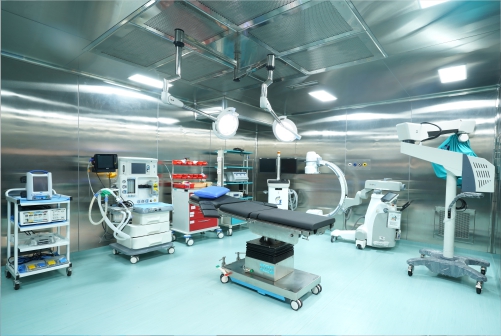CARDIOLOGY
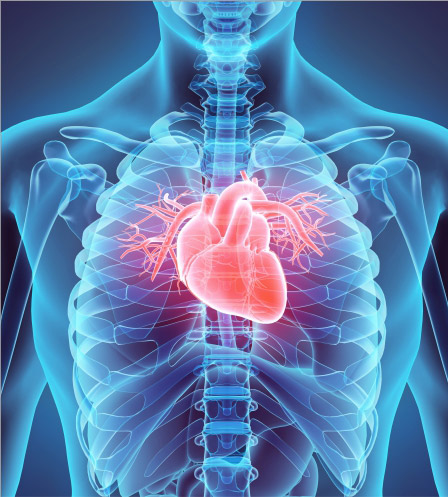
Heart care Beyond compare
The Department of Cardiology at Bhrungi Hospitals comprises Cardiologists who have extensive experience in treating people with conditions of the heart, arteries and veins (cardiovascular diseases).
At Bhrungi, we believe that successful treatment starts with an accurate diagnosis. Our top-rated heart experts take the time to listen and understand your symptoms and concerns. You might undergo concerned tests so that our doctors can identify exactly what’s causing your signs and symptoms. Then they work with you to design an individualized treatment plan that aligns with your needs and goals.
employing advanced interventions, evidence based medications and rehabilitation programs that include methodical counselling on lifestyle changes and necessary dietary modifications.
The Department of Cardiology boasts of state-of-the-art infrastructural facilities, a team of experienced heart specialists, well-qualified support staff and is fully geared to treat all cardiac conditions through advanced diagnostic tests and latest outpatient procedures. Our cardiologists seamlessly coordinate with doctors specializing in echocardiography, electrophysiology, interventional cardiology and radiology, to pinpoint the problem and offer the best treatment pathway to ensure you receive the best heart care in the city.
Coronary heart disease
Angina
Unstable angina
Heart failure
Arrhythmia (abnormal heart rhythms)
Valve disease
High blood pressure
Congenital heart conditions
Inherited heart conditions
Post-operative cardiac care
Rheumatic heart disease
Cardiomyopathy
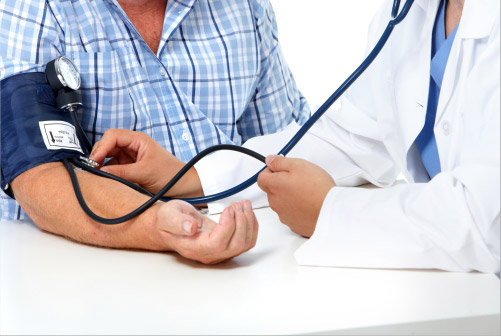
The best in critical cardiac care
To treat patients with serious or acute heart problems such as cardiomyopathy, postpartum cardiomyopathy and heart failure, Bhrungi is equipped with a best Medical Intensive Care Unit. The patients admitted here require continuous monitoring and specialized cardiovascular therapy, and are attended to 24×7 by nurses, technicians, and physicians who have been specially trained to take care of people with serious cardiac conditions.
Enhancing our capability to provide top quality cardiac care is the advanced equipment which includes a cardiac monitor that records and analyzes each beat of the patient’s heart and sounds an alarm to alert the staff if serious arrhythmias occur and ventilators for patients who experience severe breathing problems as a result of their heart condition.
Emergency Cardiac Care
To respond swiftly in an emergency and save precious lives, Bhrungi has set up a Rapid Action Team to take care of heart attack patients. The trained personnel provide timely care within the first few minutes, often referred to as the Golden Hour, which can make all the difference between saving a life or losing it. To make emergency care possible in a short span of time, the Rapid Action Team brings together medical professionals such as emergency physician, emergency trained nurses, cardiologists, cath lab specialists, emergency technicians, radiologists etc., who work cohesively to ensure world class care for heart patients.
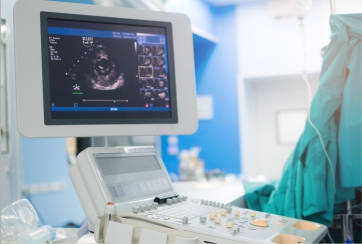
2D Echo
An echocardiogram provides an ultrasound picture that shows the structure of the heart chambers and surrounding areas, and makes it easy to check for damages, blockages, and blood flow rate.
A 2D Echo is done to detect conditions such as:
• Any underlying heart diseases or abnormalities
• Congenital heart diseases and blood clots or tumours
• Malfunctioning of the heart valve
• Abnormality of blood flow within the heart
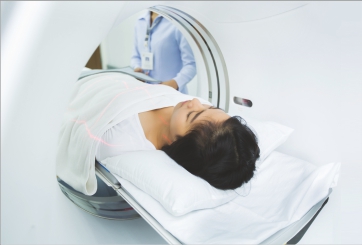
CT Angiography
A Computed Tomography Angiogram (CT Angiogram) is a test that uses X-rays to provide detailed pictures of the heart and the blood vessels. A special dye (contrast material) is injected in your arm or hand to make the blood vessels easier to see on the scan.
Your doctor may recommend CT Angiography for the following reasons:
• To find an aneurysm (a blood vessel that has become enlarged and may be in danger of rupturing)
• To find blood vessels that have become narrowed by atherosclerosis (fatty material that forms plaques in the walls of arteries)
• To detect congenital (birth-related) abnormalities of the cardiovascular system, including the heart
• To identify blood vessels damaged by injury
• To find blood clots that may have formed in your leg veins and traveled into your lungs.
• To evaluate a tumor that is fed by blood vessels
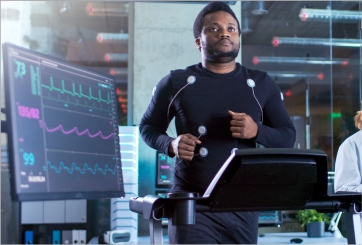
Treadmill Test (TMT)
A TMT is a stress test that shows how your heart works during physical activity, which involves walking on a treadmill while your heart rhythm, blood pressure and breathing are monitored. Since exercise makes your heart pump harder and faster, a TMT stress test can reveal problems with blood flow within your heart.
Your doctor may recommend a TMT to:
• Diagnose coronary artery disease
• Diagnose heart rhythm problems (arrhythmias)
• Predict risk of dangerous heart-related conditions such as a heart attack.
• Guide treatment of heart disorders

Electrocardiogram (ECG)
An ECG records the electrical signals in the heart. It is a non-invasive and painless test used to quickly detect heart problems and monitor your heart’s health.
Your doctor may use an ECG to determine:
• Abnormal heart rhythm (arrhythmias)
• If blocked or narrowed arteries in the heart (coronary artery disease) are causing chest pain or a heart attack
• Whether you have had a previous heart attack
• How well certain heart disease treatments, such as a pacemaker, are working
